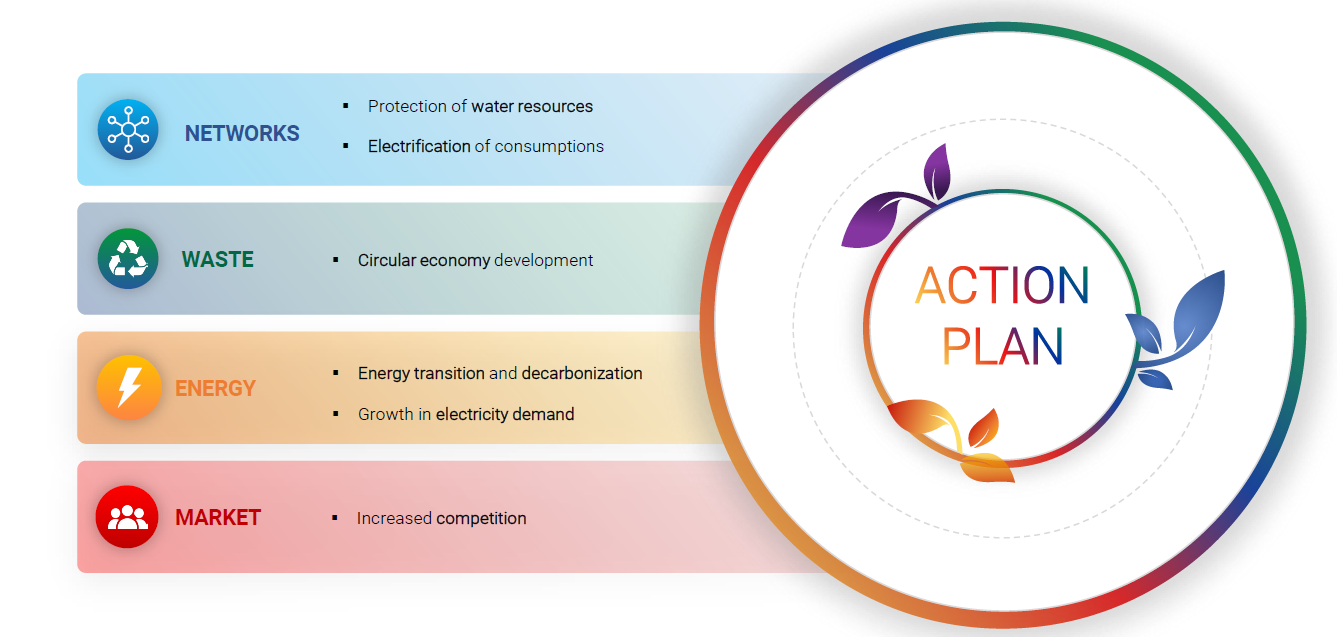Analysing the individual business areas:
Analysing the individual business areas:
- NETWORKS: Variability in water resource availability is an obvious problem, given also the periods of drought experienced in recent years. Iren responds with an approach of caring for the resource throughout the integrated cycle, from upstream water withdrawal to downstream opportunities to reuse purified water. The electrification of consumption will lead to an increase in the power of the electricity distribution network, which will have to support an ever-increasing number of users and volumes. Finally, there is clearly a greater demand for service quality to which Iren is responding with measurable improvements in the efficiency and reliability of its networks.
- ENVIRONMENT: The circular economy is declined by Iren in the development of plants for the recovery of materials and energy from urban waste. To realize this vision of integrated end-to-end management, it is necessary to increase the quantity and quality of waste by expanding the collection basins and improve processes by extending, to the new territories served, the best practices developed in sorted waste collection.
- ENERGY: The generation sector is driven by the energy transition to new zero-emission technologies, Iren's strategic vision is the combination of developing renewable capacity and increasing the flexibility of thermoelectric plants to ensure the efficient operation of the national electricity system even in the transition phase.
- MARKET: Increased competitiveness in the industry is tangible. The goal is to focus on the retention of higher-value customers. Iren responds with the solidity and resilience of its customer portfolio in which, in plan arc, new loyal customers will be added and anti-churn actions supported by active retention policies and bundled offers (commodity+services) accompanied by greater territorial capillarity in customer management channels and further development of data driven digital platforms with the use of artificial intelligence.


